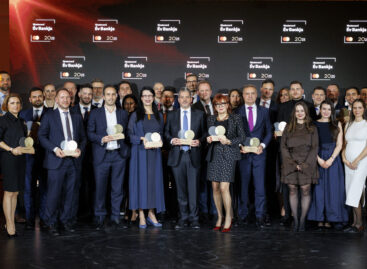Domestic slowdown vs. soaring Temu
NorbertAccording to GKID and Mastercard’s Digital Commerce Survey 2024 report, the Hungarian e-commerce market still showed growth in 2023 (8.5%), but this was a significant decline from the double-digit growth of previous years.
This article is available for reading in Trade magazin 2024/6-7

Norbert Madar
lead consultant
and partner
GKID
E-commerce ended 2023 with a 9.8% share in retail trade. Recent events such as the economic slowdown or the energy crisis and the inflation shock have led Hungarian consumers to seek lower-priced, alternative products, which favours cheaper foreign-based online stores. In 2023 the number of online orders served by domestic online retailers grew by only 7%, while the number of e-commerce parcels delivered by logistics companies increased by around 32% last year, with foreign orders – mainly from China – accounting for the difference between the two
Challenges in 2024
There are several factors that are worrying online retailers based in Hungary. One of these is the strengthening market position of foreign e-commerce companies, especially Chinese sellers (43%). GKID lead consultant and partner Norbert Madar is of the opinion that the growing market share of Chinese online retailers has a particularly big impact on e-commerce segments such as fashion, toys and home furnishings. “With an order volume of 1.5 million in the first quarter and such exponential growth in the number of customers, Temu could reach 10 million orders by the end of the year, beating the biggest domestic e-commerce businesses by far”, explains Norbert Madar. Temu fulfilled more than 1.6 million Hungarian orders in the first three months of 2024, with a total value of more than HUF 22.5bn.
Discounters feel it too
If we consider that the products ordered from Temu are 50-60-70% cheaper than domestic alternatives, it is clear that Hungarian online retailers are missing out on more than HUF 50-60bn worth of sales – and not only that: some of this revenue is also missing from the middle aisles of discount supermarkets in Hungary, where these impulse products used to be popular. Following Temu’s example, the first step of domestic e-commerce businesses should be encouraging consumers to download their apps. Push notifications are almost free, so from now on these online sellers wouldn’t have to pay thick advertising money to Meta or Google. Next the customer experience needs to be improved: if the product arrives from China in 5-10 days, 3-4 day delivery from a domestic retailer is unacceptable.
The country of parcel lockers
In domestic e-commerce we can see that 71% of shoppers request their parcel to be delivered to their homes. However, there is also a 20% share of intermediate, so-called out-of-home parcel pick-up solutions. This has two main areas: one is the parcel point (newsagents, petrol stations) but the other, parcel lockers is more dominant with a 61% share, and a volume growth rate of 190%. In Hungary there are more than 5,100 parcel lockers operating in eight different networks: GLS, Packeta, FoxPost, Easybox, AMD, MPL (Hungarian Post), Alzabox and DTD Express.

Ildikó Cserjés-Kopándi
partner
GKID
“The current network has expanded by more than 1,500 lockers in the last 12 months and a further 1,500-2,000 are expected to be added over the next year”,
stressed Ildikó Cserjés-Kopándi, a GKID partner.
More cyberattacks
In addition to international competition, losses caused by cyberattacks are also increasingly affecting the Hungarian e-commerce sector: 24% of domestic online retailers reported having suffered a cyberattack, a 4% increase over the last nine months.

Péter Mondovics
cyber security and marketing manager
Mastercard
Péter Mondovics, cyber security and marketing manager at Mastercard pointed out that the majority of newly affected online retailers are from the FMCG, fashion, and the DIY and home improvement categories. The most common form of attack is the load attack, which accounts for 47%. The expert added that the number of cyberattacks has increased with the spread of digitalisation, and attacks have become increasingly sophisticated, e.g. phishing attempts, fraudulent text messages. //
Big growth in the online FMCG market in 2023

GKID has been compiling public rankings of the top online retailers since 2015. This time the e-commerce research company did four thematic sales rankings, in cooperation with Mastercard. Compared to the TOP15, FMCG companies had a more balanced year in 2023: from the 10 retailers on the list, only one suffered a sales drop in 2023, and the average growth rate among the companies that expanded was 36%. The TOP10 generated HUF 124.6bn combined sales in 2023, a 25% growth in one year.//
Related news
Related news
Nearly 140 domestic suppliers, 60% growth – SPAR Regions Treasures program accelerates with AI solutions
🎧 Hallgasd a cikket: Lejátszás Szünet Folytatás Leállítás Nyelv: Auto…
Read more >







